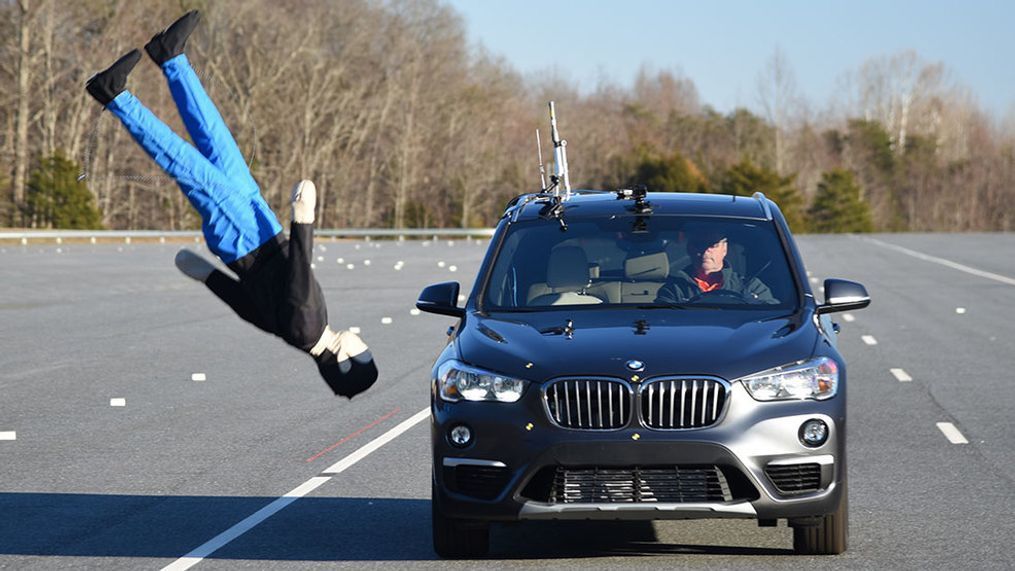IIHS begins evaluating how effectively cars automatically brake for pedestrians

The BMW X1 didn't even appear to slow down as it barreled toward a dummy on the IIHS' test track in Virginia. With a pop, the small crossover SUV plowed into the dummy, launching it into the air.
Nine of 11 crossover SUVs tested by the IIHS had no problem automatically applying the brakes in enough time to avoid impact with pedestrians, the insurance industry-funded group said Thursday. Those models earned high marks, while the BMW—incidentally the costliest of the group—received no rating whatsoever.
The IIHS said that it will begin evaluating automatic emergency braking systems with pedestrian protection for not only how effectively they prevent crashes with cars but also now with humans.
READ THIS: Family of pedestrian killed by self-driving Uber test car files $10M claim against city
The 2019 Honda CR-V, 2019 Subaru Forester, 2019 Toyota RAV4, and 2019 Volvo XC40 each earned the best "Superior" rating in the test, while the 2019 Chevrolet Equinox, 2019 Hyundai Kona, 2019 Kia Sportage, 2018–19 Mazda CX-5, and 2019 Nissan Rogue earned "Advanced" ratings. Just two of the 11 crossovers tested faired poorly. The 2019 Mitsubishi Outlander earned a "Basic" rating because its system was late at applying the brakes, while the X1 received no credit.
ALSO SEE: Florida ranked most dangerous state for pedestrians
The move to test these systems, specifically with an eye for pedestrian safety, comes as pedestrian crashes and fatalities continue to rise from its lowest level in 2009. In 2017, 5,977 pedestrians died in crashes, the IIHS said.
The tests focus on three different scenarios. The IIHS uses pedestrian dummies to mimic a pedestrian entering the road in the path of an oncoming vehicle. The second tests a child darting from behind two parked cars to see how quickly the system reacts. The third mimics a pedestrian walking in the vehicle's path on the right side of the road with the pedestrian's back turned away from the car. Even if a vehicle equipped with automatic emergency braking doesn't come to a complete stop, lower speeds greatly reduce the risk of a fatal crash.
Read more from Internet Brands Automotive:
